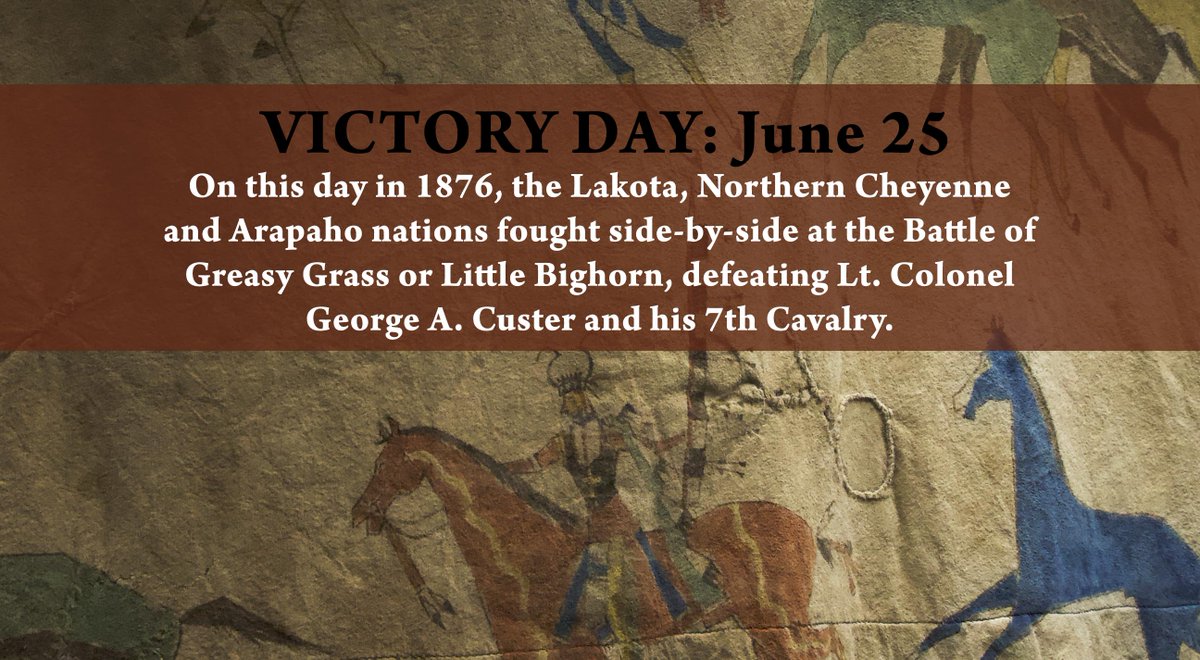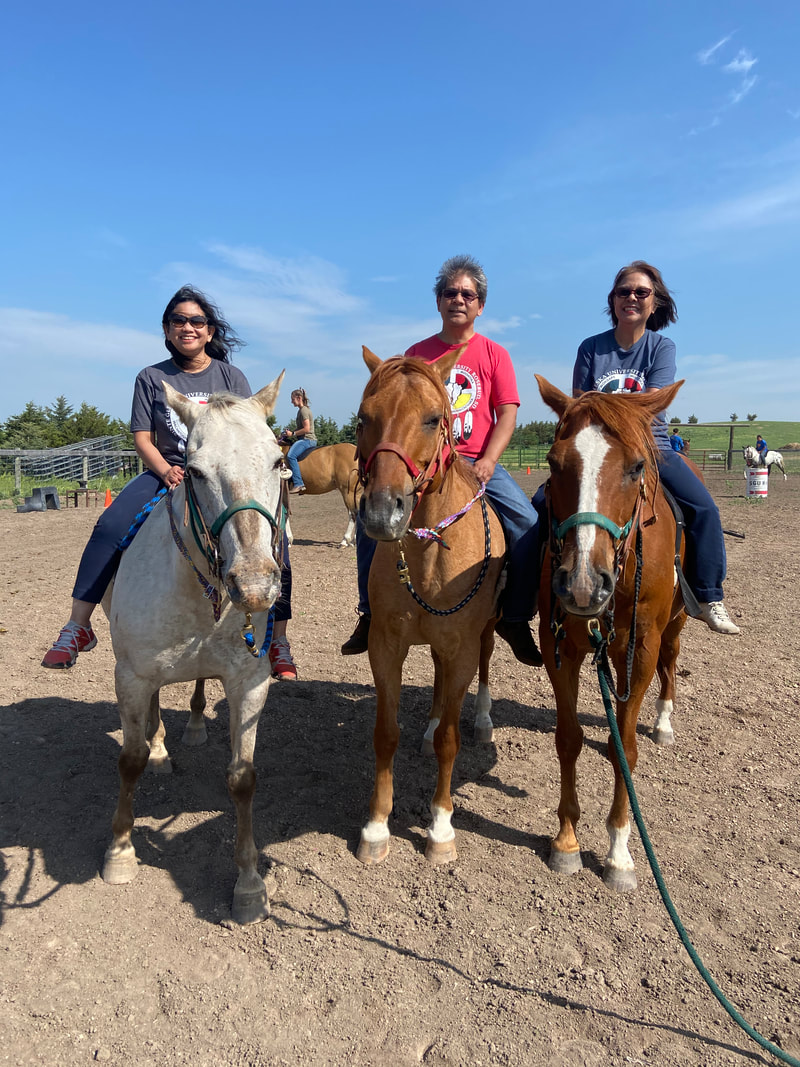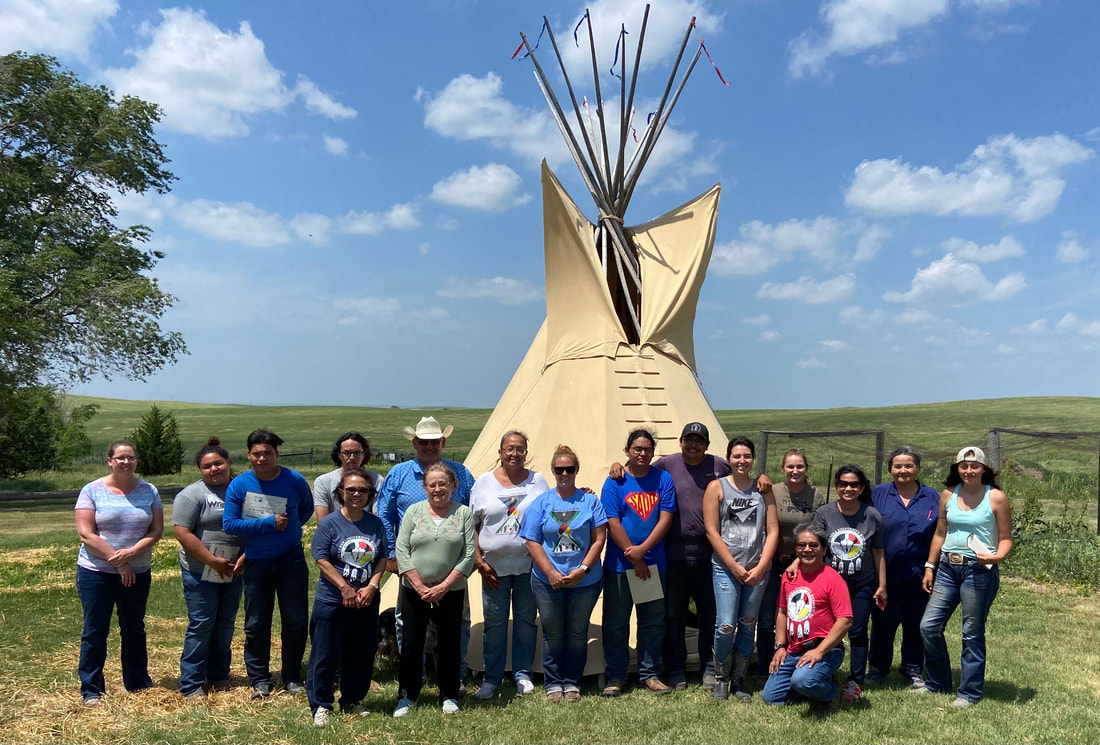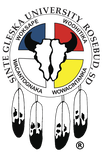|
Sinte Gleska University Tiwahe Glu Kini Pi (TGKP) “Bringing the Family Back to Life” Children’s Mental Health Center held their annual Teen Horse Handler Training Camp, June 7th through June 10th, 2021 at the SGU Horse Ranch. Five local teens, along with Ranch and Program staff participated along with three visitors, Dr.Joy Ruiz-Molleston, Dr. Lisa Ruiz and Dr. Glenn Ruiz from Moscati Meadows treatment center in the Philippines. Moscati Meadows plans to incorporate equine therapy into their drug and alcohol treatment center. They attended the training to learn more about the TGKP program and equine therapy. Horses are not common in the Philippines and their treatment center will be the first to offer equine assisted therapy. Ron Frederick from SDSU extension presented information on the care, safety, and behavior of horses as well as horse anatomy, horse handling and first aid. This information laid a foundation of knowledge for the horse handlers in training. Participants also learned and practiced grooming, how to halter and bridle a horse and how to put on riding pads. TGKP Therapists offered basic information on mental health issues and familiarized participants with issues children often deal with in equine therapy. Next, the handlers took part in a team building exercise, putting up a Tipi. While doing so, they learned about traditional family behaviors and values. Participants also rode horses each day and learned to tether other horses as they will do this while working with upcoming children’s horse camps. Later in the day, Justin Baker of TGKP, provided some training on recovery from addictions via zoom for our visitors from his hospital bed in Rapid City where he is recovering from an accident. On the last day of the camp handlers competed in the “Horse Handler Olympics.” This was a timed event to showcase the skills they learned during the week, such as unloading bags of feed, pounding in a metal fence post, and bridling a horse. The 5 youth horse handlers completed their training, received certificates and will assist staff during the upcoming summer horse camps. The camp ended with a cookout attended by participants and their families. It was a great week!
0 Comments
 SGU Is Closed Every June 25th In Observance of Lakota Victory Day Battle of the Greasy Grass Pheží Slá Okíčhize The Battle of the Little Bighorn was fought in the south-central territory of what is now called Montana on June 25-26, 1876, near the Little Bighorn River. Historical accounts of the battle vary and for generations, many of those accounts recorded in history books ignored the accounts of Native Americans who were present at the battle. What is certain is that when the dust settled on June 26, Lieutenant Colonel George Armstrong Custer and many of his men from the 7th Calvary lay dead at the hands of the Lakota, Northern Cheyenne, and Arapaho nations. Many descendants of those present at the battle reside on the Cheyenne River Sioux Reservation, and many tiospayes (families) have passed down the oral stories of their ancestors. June 25 is known as Victory Day on Cheyenne River and through the Great Sioux Nation. CRST commemorates the day as a Tribal holiday and many tribal members make an annual homage to the battle site in Montana. Some tribes, pre-coronavirus, have wacipis (powwows) within their communities, while others have horse rides to honor the deeds of their ancestors. The victory 144 years ago is an important event in history for the Lakota people- it is the most decisive Native American victory and the worst U.S. Army defeat in the Indian Wars. Even today, the 7th Calvary flag can be observed at wacipis- it does not fly high in the air, it is dragged on the floor and in the dirt as many people come to step on it. Many veterans of the Cheyenne River Sioux Tribe carry the United States American flag not to show allegiance or patriotism, but as a war trophy for their ancestors’ victory at the Greasy Grass. As you enjoy Victory Day, remember the ancestors, their bravery, courage, and fortitude. |
Strengthening the Circle :
|
- About
- Quick Links
- News
- Governance
- Discover SGU
-
Student Life
- Facts and Figures
- Online Learning Support
- New Student Info/Registration
- Research Review Board >
- 2023 Graduation Ceremony
- 2023 Graduate Photos
- Student Association
- Literacy Center
- Disability Services
- Counseling Services
- Child Care
- Transportation
- Security
- Bookstore
- Library
- Web Mail
- What You Can Do At SGU
- Poll
- Student Opportunities
- After Graduation
-
Departments
- Staff
- Giving
- Board Minutes
Mailing Address: Po Box 105/Mission, SD/57555
Shipping Address: 101 Antelope Lake Circle/Mission,SD/57555
605-856-8100
Shipping Address: 101 Antelope Lake Circle/Mission,SD/57555
605-856-8100
Accreditation and Sinte Gleska University – A Short History
Sinte Gleska University has been accredited by the Higher Learning Commission (HLC – formerly the North Central Association) since 1983. Because SGU is accredited, colleges and universities across the United States will review courses that students take at SGU and will consider them for transfer.
For more information, and to see the most recent correspondence from HLC to SGU, click on the HLC logo
Sinte Gleska University has been accredited by the Higher Learning Commission (HLC – formerly the North Central Association) since 1983. Because SGU is accredited, colleges and universities across the United States will review courses that students take at SGU and will consider them for transfer.
For more information, and to see the most recent correspondence from HLC to SGU, click on the HLC logo
All Media on this site ©2023 Sinte Gleska University.
Do not use without permission. Sinte Gleska University and the Sinte Gleska University Logo are Protected and Registered Trademarks.
Not to be used without permission.See HERE for legal information
Do not use without permission. Sinte Gleska University and the Sinte Gleska University Logo are Protected and Registered Trademarks.
Not to be used without permission.See HERE for legal information



 RSS Feed
RSS Feed
